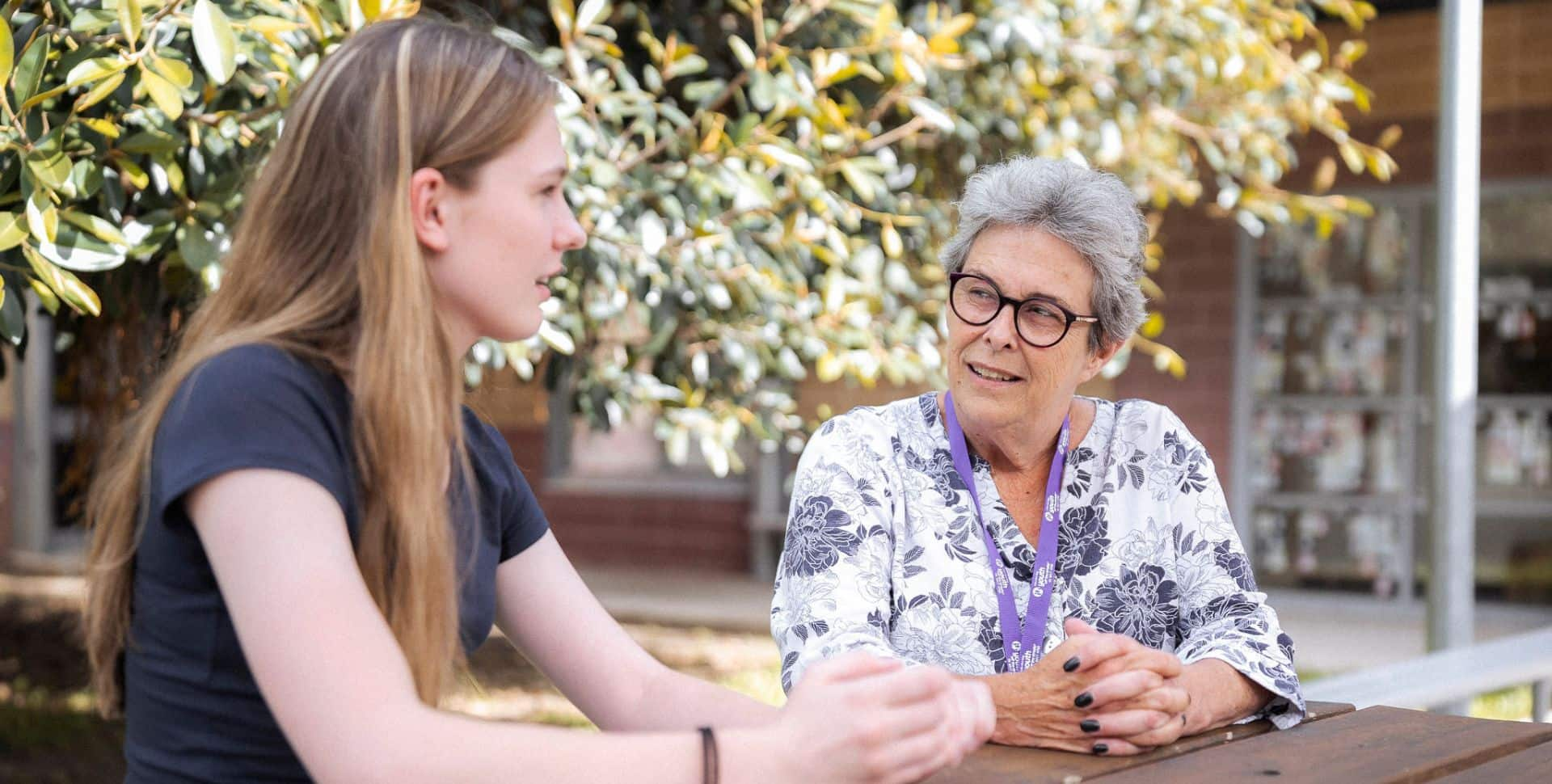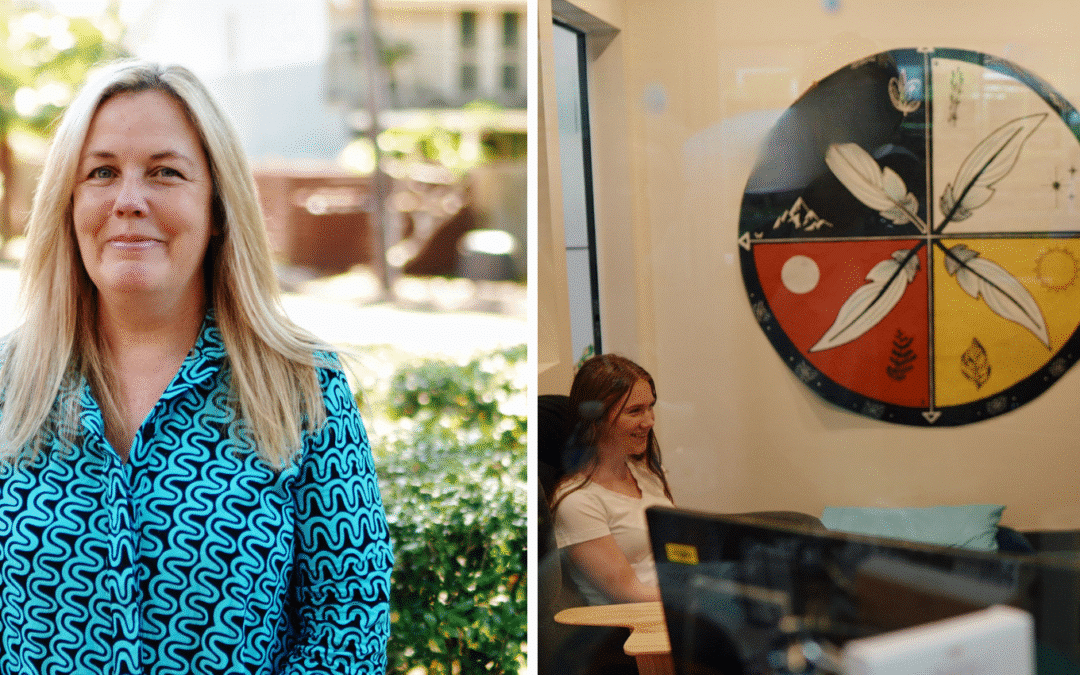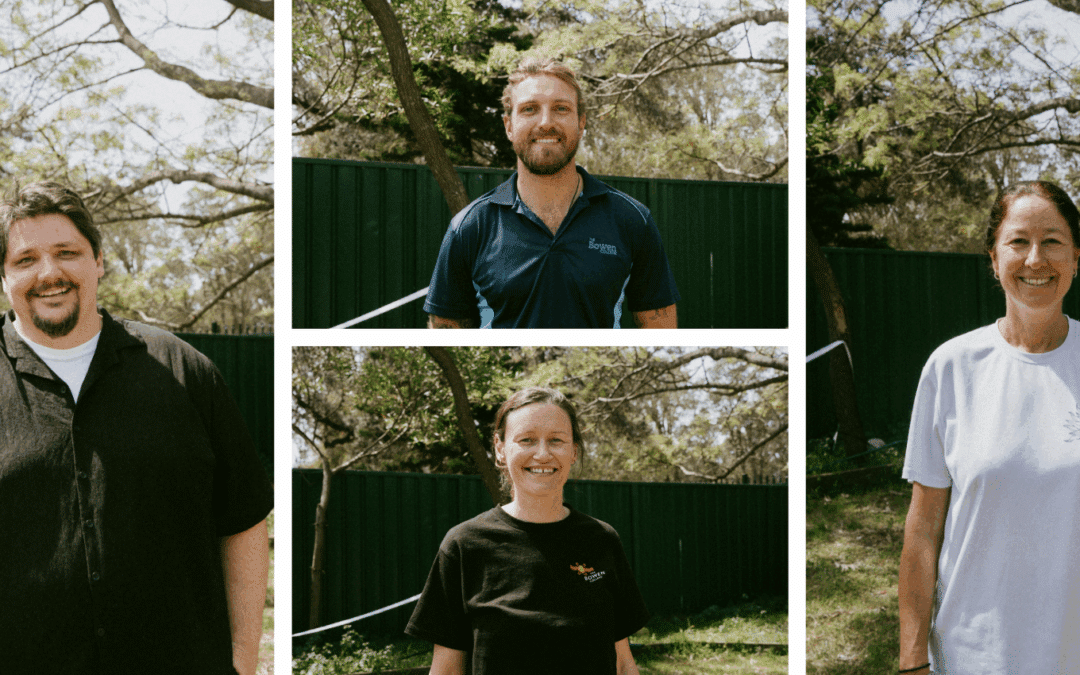Kylie Sharp has spent 20 years of her career at Youth Off The Streets refining the ways she helps young people who face domestic, family and sexual violence (DFSV).
Kylie, the Education DFSV Prevention and Support Team Lead, has drawn on her own lived experience to assist children and young people – as well as the trained professionals who support them at our independent high schools.
Over time, she realised that students often feel too uncomfortable or unsafe to disclose incidents of family violence.
“Young people have stated that, when they’re asked about DFSV, these conversations can be superficial,” Kylie says.
“Many of them come to Youth Off The Streets with some supports already around them. Still, they have never disclosed that they were in a violent situation – and they haven’t been asked the right questions that could encourage them to make a disclosure.”
At the same time, Kylie noticed that young people under the age of 16 are falling through the cracks of the child protection system.
“Young people aren’t allowed to leave their homes without the support of the Department of Communities and Justice (DCJ),” Kylie explains.
“At the moment, DCJ are all about preserving family relationships. If we can’t help young people to leave, we need to at least equip them with tools to keep themselves safe.”
This nuanced understanding of the child protection sector, alongside ongoing feedback from students, inspired Kylie to develop Safe Conversations.
Designing the Safe Conversations program
Safe Conversations is a Youth Off The Streets training package offered to youth sector professionals working with young people who may be experiencing DFSV.
Safe Conversations is exactly that: a format for youth workers to hold confidential conversations about the individual experiences and needs of the young person in safe and supportive ways.
Initially, Kylie consulted with eight Youth Off The Streets high school students – and their in-school DFSV support workers – to determine how such a program should be built.
One student, Elizabeth*, identified that trust, privacy and confidentiality were essential components of a safe conversation.
“Even when you’re not ready to talk, still come and say hello – not just when you want to,” Elizabeth suggested to school-based DFSV workers.
“This builds trust.”
Another student, Cody*, offered a similar opinion during the consultation.
“Don’t come up to us when we’re with our friends, as we don’t necessarily want them to know what we’re going through,” Cody said.
“You should also check how deep we want to go into the conversation ahead of time.”
Kylie agrees. She believes that support workers should research young people’s specific situations, as well as strategies that have been implemented during previous conversations with them, to build rapport.
“Young people have been hurt before, and they need to feel trust and safety to disclose,” Kylie says.
“Also, you should always have ‘real’ conversations – meaning that you should go at the young person’s pace, be mindful of their moods and ask whether they want to chat.”
As she began to write the Safe Conversations curriculum, Kylie also distinguished ‘safe’ conversations from their ‘unsafe’ counterparts.
An unsafe conversation can retraumatise the young person. They might shut down, never to disclose again, or their parents could find out and transfer the child to another school.
“Unsafe conversations can also traumatise the person listening – if they don’t have the skills to deal with it correctly – and endanger the student who is disclosing,” Kylie says.
She now considers these risks when delivering Safe Conversations sessions, which are facilitated by Youth Off The Streets’ Registered Training Organisation (RTO).
These hands-on workshops are recommended for community services, healthcare and related workers who need to recognise and respond appropriately to DFSV.
Kylie shares important resources and practical lessons, all while responding to attendees’ questions in an extended Q&A format. She helps course participants to understand their ethical and legal considerations, and provide appropriate support and referrals for the young people they work with – who are, as Kylie describes them, “warriors”.
In the words of the young people consulted, “Words like ‘victim’ make us feel uncomfortable and powerless.”
“We prefer it when people refer to us using strengths-based words, like ‘survivor’, ‘fighter’ and ‘warrior’.”
Click here to learn more about supporting young people impacted by DFSV through the Safe Conversations training course delivered by Youth Off The Streets.



